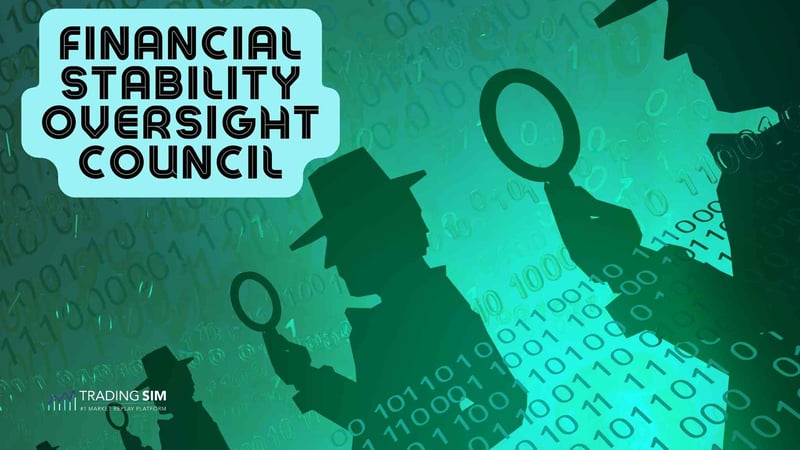What is the Financial Stability Oversight Council (FSOC)?
The Financial Stability Oversight Council (FSOC) is the United States federal government institution set up in July 2010 following the passage of the Dodd-Frank Wall Street Reform and Consumer Protection Act. The organization is tasked with identifying any risks or threats to the United States financial sector from the potential failure of big banks and financial institutions.
What is the purpose of the FSOC?
The aim of establishing the FSOC is to prevent catastrophic events like the Great Recession and the 2007 financial meltdown. More specifically, the Dodd-Frank Act outlines three primary roles of the FSOC:
- Identify risks and threats to the stability of the U.S financial system.
- Encourage discipline among participants by removing the perception of bailouts.
- Respond to new and emerging threats that can destabilize the financial system.
After the 2007 financial crisis, the U.S government bailed out large banks and financial institutions, which caused a furor among the general public. The banks took too much risk, believing that they are too big to fail. This led to increasing calls for holding those large institutions accountable for their actions, instead of bailing them out.
As a result, the FSOC was created to monitor risks and threats to the financial system and safeguard the system from the potential failure of large banks and institutions. The Council publishes its findings on the financial system and possible threats in its publicly available annual report.
What powers does FSOC have?
The FSOC has the authority to monitor, investigate, and evaluate threats to the U.S financial system. It can gather information from bank holding companies and nonbank financial companies through the Office of Financial Research, an independent agency of the United States Department of the Treasury that supports the work of the Council. It also has the authority to get data from federal and state financial regulatory agencies.
The Council also examines different regulatory proposals and guides the Federal Reserve and Congress on steps to further improve the U.S financial markets. It periodically sends a report to Congress, informing members about the latest condition of the financial statement.
The Council’s voting members, through their votes, recognize the efforts of the federal government for keeping financial markets stable. In case some voting members dissent and view the federal government’s actions as unsatisfactory, they can propose corrective measures to mitigate systemic risk and ensure stability in the financial markets.
The Chairman of the Council, with the approval of ⅔ voting members, can even put nonbank financial companies or local subsidiaries of foreign banks under the supervision of the Federal Reserve if it believes that they can destabilize the U.S financial system. The Federal Reserve also has to seek the Council’s approval for promulgating certain regulations. For example, if the Fed wants to exempt some foreign banks from safe harbor regulations, it needs the consent of the Council for doing so.
Further, the Council’s recommendation for changes or tightening of any regulations relating to financial markets has to be obliged by the primary regulatory agencies. The FSOC presents its report to Congress about whether its recommendations on financial markets have been implemented or disregarded by the concerned agencies.
Who serves on the FSOC?
The U.S Treasury Secretary heads the Council. The members of the Council include ten voting members (including the Chair of the Council) and five non-voting members. Here is the list of offices that are voting members of the Council:
- Secretary of the Treasury (Council’s Chair)
- Chairman of the Federal Reserve
- Chairman of the U.S. Securities and Exchange Commission
- Chairman of the Commodity Futures Trading Commission
- Director of the Consumer Financial Protection Bureau
- Chairman of the Federal Deposit Insurance Corporation
- Chairman of the National Credit Union Administration Board
- Director of the Federal Housing Finance Agency
- Comptroller of the Currency
- an independent member (with expertise in the insurance industry), appointed by the President.
The five non-voting members of the Council include:
- Director of the Federal Insurance Office
- Director of the Office of Financial Research
- State Insurance Commissioner
- State Securities Commissioner
- State Banking Supervisor
The non-voting members of the Council serve in an advisory role.
What is the FSOC’s take on Stablecoins such as Tether?
In its 2021 annual report, the Financial Stability Oversight Council expressed its reservations over the growing adoption of stablecoin and digital assets. The Council highlighted several important factors, such as illiquidity, non-transparent redemption rights, hacking attacks, and unsatisfactory safeguards, which could shatter consumer confidence on stablecoins and other digital assets. The report mentions that a run on stablecoins during market plummets could magnify and destabilize the economy as well as the financial system.
The FSOC, in its report, also took note of the developments in decentralized finance (DeFi); it talked about the wide-scale catastrophe in the crypto market during price declines because the use of high leverage in such instruments could trigger further plummet and a series of margin calls. In its report, the Council proposed that federal and state agencies should legislate on stablecoins and digital currencies as failure to monitor them could pose significant threats to the security of the country’s financial system.
However, the Council was not completely critical of cryptocurrency, digital assets, and the allied technology. The report highlighted that cryptocurrencies and distributed ledger technology present many opportunities for innovation in the financial markets. To benefit from cryptocurrency potential, there is a need for coordination among regulatory agencies in the fast-changing crypto and digital assets market.
Summary of the FSOC
The Financial Stability Oversight Council serves an important function of keeping the U.S financial markets stable. It monitors risks in the financial system and proposes ways to address those risks. The Council has broad powers, using which it performs its responsibilities. As an investor, you need to read annual reports published by the Council as it contains important information such as risks and the current state of the financial system.










